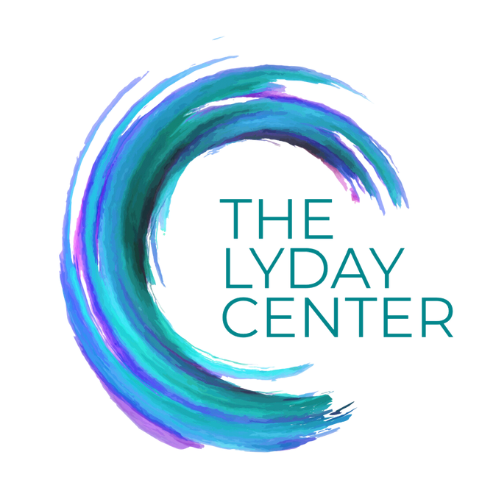The Ancient Wisdom in Your DNA
How Your Blood Type Shapes Your Diet: The Ancient Wisdom in Your DNA
At The Lyday Center, we’re always seeking to understand the root of imbalance—through the lens of genetics, environment, and even your blood type. The blood type diet has long been a controversial but intriguing topic in the world of functional medicine, and we believe it's time to reexamine it with fresh eyes and personalized insight.
We are now beginning to assess blood types in our in-person patients and pairing this with live blood analysis to give us moment-to-moment insight into how your body is reacting to food, toxins, and inflammation. Why? Because your blood type may hold the key to healing your gut, calming inflammation, balancing your immune system, and choosing foods that work for your body—not against it.
🧬 Why Blood Type Matters in Functional Medicine
Your blood type is a biochemical fingerprint. It influences:
How your body digests and absorbs food
Your microbiome and immune response
Your susceptibility to stress, inflammation, and even chronic disease
Each blood type (O, A, B, AB) produces different antigens, enzymes, and immune markers. When we eat foods that don’t align with our blood type, we may trigger immune responses—ranging from subtle inflammation to overt autoimmunity or metabolic imbalance.
🧭 Ancestral Diet Origins by Blood Type
Understanding how blood types evolved gives us clues into what your body may be best adapted to:
🩸 Type O – The Oldest Blood Type
These were our ancient hunters. Type Os thrive on a high-protein, meat-based diet and do poorly with grains, which only arrived later with agriculture.
Biggest Avoid: Grains (especially gluten-containing), processed carbs.🩸 Type A – The Agrarian Farmer
The arrival of agriculture brought a shift. Type As do better on a plant-based or pescatarian diet, with light grains and fermented foods.
Biggest Avoid: Cow’s milk and dairy—often inflammatory to this group.🩸 Type B – The Nomadic Herder
Type Bs are flexible eaters who benefit from a balanced diet of meat, dairy, and plants. However, they have a surprising intolerance:
Biggest Avoid: Chicken. Its lectin content may cause immune issues in Bs.🩸 Type AB – The Modern Merge
This rare blood type is a blend of A and B, and needs a very clean, mindful diet—avoiding both chicken and cow’s milk.
Biggest Avoid: Cow's milk and chicken. They can create inflammation and immune imbalance.
🧪 Live Blood Cell Analysis: Your Nutritional Mirror
At TLC, we use live blood analysis to observe:
Red blood cell integrity (oxygen and iron delivery)
Immune activity
Oxidative stress and inflammation
Digestive efficiency
When combined with blood type analysis, we can tailor your nutritional plan with precision. You'll no longer be guessing what foods are harming or healing you—we’ll show you in real time.
🍽 Practical Food Guidelines by Blood Type
Here’s a simplified breakdown to get you started:
People with Type O blood, the oldest and most “hunter” blood type, tend to thrive on a high-protein, meat-based diet with plenty of leafy greens and healthy fats while doing poorly with grains, especially gluten-containing ones.
Those with Type A blood, the “farmer” blood type that emerged with agriculture, generally do better with a more plant-based or pescatarian diet, tolerating light grains and fermented foods but reacting poorly to cow’s milk and most dairy products.
Individuals with Type B blood, the “nomads,” benefit from a balanced diet including meats, vegetables, and certain dairy but should avoid chicken, which contains lectins that can trigger immune reactions in this group.
Finally, people with Type AB blood, a rare blend of A and B, do best on a very clean and mindful diet, often thriving on seafood, vegetables, and plant-based proteins but reacting poorly to both chicken and cow’s milk. This ancestral framework helps us understand how your body may be better adapted to certain foods and why eating for your blood type can reduce inflammation, improve digestion, and support healing.
Note: Always personalize with testing and professional guidance—your gut health, genetics, and lifestyle also matter deeply.
🔍 Why This Matters for Your Healing
If you’ve hit a plateau in your healing journey, it may be time to stop looking at “one-size-fits-all” diets and begin understanding the unique biochemistry of your blood.
Blood type-based eating is not a fad—it’s ancestral nutrition aligned with your DNA. It's another powerful tool we use to support detox, immune balance, metabolic repair, and mental clarity.
💬 Ready to Find Out Your Blood Type?
If you're visiting us in person, we’ll begin offering blood type identification as part of your intake and live blood review. This is just another way we support root-cause healing and give you answers no one else is looking for.
🌱 Final Thoughts
At The Lyday Center, we believe healing happens when we listen to the body’s clues—and blood type is one of them. Understanding your blood type isn’t about putting you in a box. It’s about learning how to nourish yourself intuitively, ancestrally, and functionally.
🛑 Say goodbye to foods that inflame you.
✅ Say yes to food that fuels your healing.
📞 Call to Action:
If you haven’t had your blood type checked, or want to explore how food is impacting your body at the cellular level—schedule your in-person visit today. Let’s start decoding your roadmap to true vitality.
With healing,
Dr. Lyday & The TLC Team

